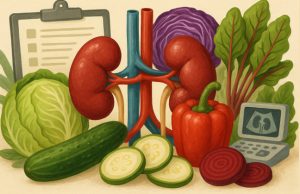
Eggs are a nutrient-dense food that can influence your body in different ways when eaten daily. Although they are loaded with essential nutrients, their effects largely depend on the quantity you consume and your overall diet and health.
Positive Effects of Eating Eggs Every Day
1. Excellent Source of High-Quality Protein
What It Does: Eggs offer all nine essential amino acids, making them a complete protein.
Benefits:
Builds and repairs muscles.
Keeps you feeling full longer, aiding weight management.
2. Rich in Essential Nutrients
Nutritional Highlights:
Choline: Supports brain health and memory.
Vitamin D: Strengthens bones and boosts immunity.
Vitamin B12: Essential for red blood cell formation and energy production.
Iron and Selenium: Boosts metabolism and strengthens immunity.
3. Promotes Heart Health
Contrary to old beliefs, moderate egg consumption (1–2 eggs per day) does not significantly raise cholesterol levels in most people.
Benefits:
Raises HDL (“good” cholesterol), which reduces the risk of heart disease.
Provides omega-3 fatty acids (especially in enriched eggs), which lower triglycerides.
4. Supports Eye Health
Key Nutrients: Lutein and zeaxanthin.
Benefits:
Protects against age-related macular degeneration (AMD) and cataracts.
Reduces oxidative stress on the eyes.
5. Strengthens Bones and Teeth
Eggs are a good source of vitamin D, which helps the body absorb calcium, promoting stronger bones and teeth.
6. Aids Weight Management
The high protein content in eggs keeps you to fuller for longer, reducing overall calorie intake throughout the day.
Benefit: Helps to curb hunger and supports healthy weight loss.
7. Enhances Brain Function
Choline in eggs is important for brain development and function.
Benefit: Improves memory and cognitive performance.
Potential Risks of Eating Eggs Daily

1. Cholesterol Concerns
Eggs are rich in dietary cholesterol (186 mg per large egg yolk).
Risk:
May have effects on blood cholesterol levels in individuals with pre-existing conditions like hypercholesterolemia or heart disease.
If concerned, limit egg consumption to 4–5 eggs per week or focus on egg whites.
2. Allergies
Some people may have an egg allergy, particularly in children.
3. Risk of Overeating Calories
Adding eggs to an already calorie-dense diet can cause weight gain.
How to Consume Eggs Safely and Healthily
Preparation Methods:
Choose boiled, poached, or scrambled eggs with minimal oil or butter.
Avoid deep-fried or highly processed egg dishes.
Pair Wisely:
Mix with vegetables, whole grains, or avocado for a balanced meal.
Who Should Be Cautious?
Those with diabetes or heart conditions should consult their doctor regarding egg consumption.
People with a history of high cholesterol should consider moderation or focus on egg whites.



















